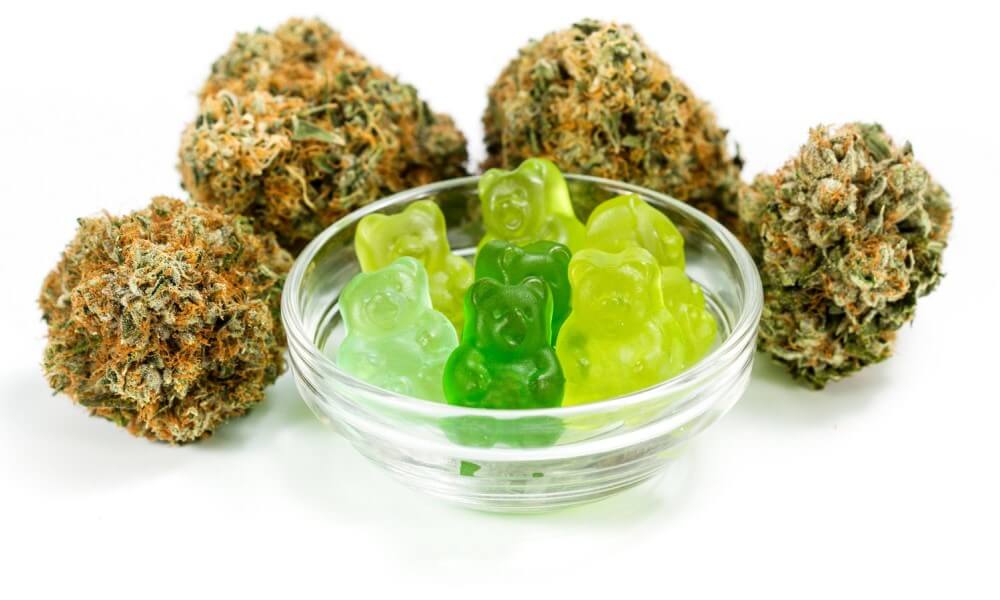
Cannabis-derived edibles have expanded far beyond the classic marijuana brownie. Today’s market offers a variety of cannabinoid options, with THC gummies remaining the most recognized while newer alternatives like HHC gummies gain attention. Though chemically related, these two compounds offer distinct experiences, legal statuses, and potential effects that consumers should understand before making choices.
- THC (delta-9-tetrahydrocannabinol) represents the primary psychoactive compound naturally occurring in cannabis plants. This cannabinoid has been extensively studied since its isolation and identification in 1964, giving us decades of research on its effects and properties. THC gummies contain this compound, typically extracted from marijuana plants or synthesized from CBD derived from hemp.
- HHC (hexahydrocannabinol) exists as a semi-synthetic cannabinoid created through hydrogenation. This process adds hydrogen molecules to THC or other cannabinoids, altering their chemical structure. While trace amounts of HHC occur naturally in cannabis, commercial HHC products typically contain lab-created versions synthesized from hemp-derived cannabinoids. This chemical difference creates subtle but essential variations in how these compounds interact with the body.
Effects and potency comparison
Most users report thc gummies produce more predictable and consistent effects, characterized by the classic cannabis high, including euphoria, altered sensory perception, and potential relaxation or stimulation, depending on the strain source. THC binds directly and powerfully to CB1 receptors in the brain, explaining its pronounced psychoactive effects.
HHC generally produces similar effects to THC but with some notable differences. Many users describe HHC as providing a clearer-headed high with less anxiety and paranoia potential than THC. The effects often focus more on physical sensation than mental alteration, though experiences vary significantly between individuals. Potency-wise, HHC typically registers as slightly less potent than an equivalent amount of THC, with most estimates placing it at 70-80% of THC’s psychoactive strength.
Legal status complexities
The legal distinction between these products represents the most significant differences. Federally, THC gummies derived from marijuana remain illegal in most states but legal in states with medical or recreational cannabis programs. Delta-9 THC hemp products containing less than 0.3% THC are legal gray areas by dry weight.
HHC occupies an even more ambiguous legal position. Manufacturers argue that because HHC is derived from federally legal hemp and isn’t explicitly named in controlled substance schedules, it remains legal at the federal level. This assertion has allowed HHC gummies to be sold in many states where traditional THC products remain prohibited. This interpretation hasn’t been conclusively tested in courts, and some states have specifically banned HHC alongside other hemp-derived cannabinoids.
Product consistency
THC gummies from licensed dispensaries undergo mandatory testing for potency and contaminants, providing greater consistency and safety assurances. Legal markets typically require detailed labelling, including precise cannabinoid content, allowing for more accurate dosing.
HHC products, particularly those sold outside licensed cannabis dispensaries, may face less rigorous quality control requirements. Independent tests have found significant discrepancies between labelled and actual cannabinoid content in some HHC products. This inconsistency makes precise dosing more challenging and increases the importance of purchasing from reputable manufacturers who provide comprehensive third-party testing results.
When deciding between THC and HHC gummies, consider these key factors:
- Desired effects profile (traditional cannabis high vs potentially more apparent experience)
- Legal status in your location
- Product quality assurance and testing
- Drug testing concerns, if applicable
- Personal sensitivity to different cannabinoids
During the rapid development of this market, we will undoubtedly gain even more knowledge of the differences between cannabinoids as research continues.




